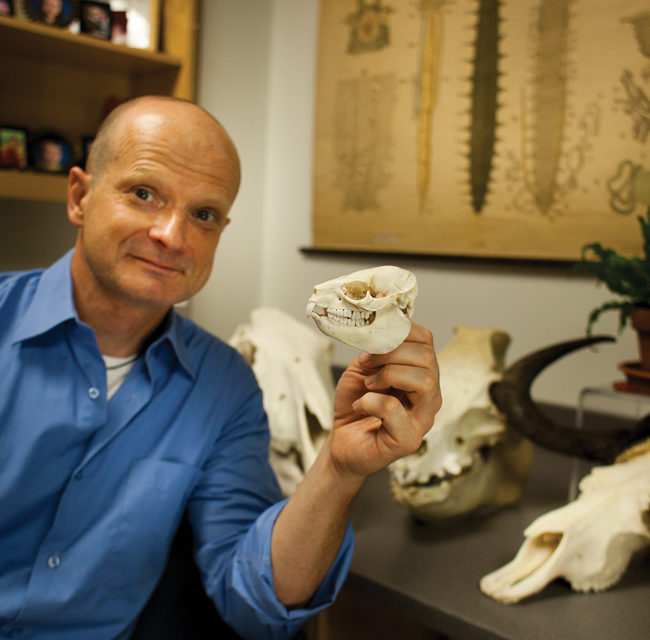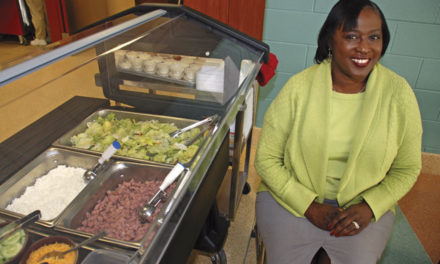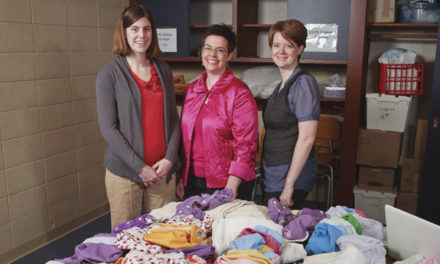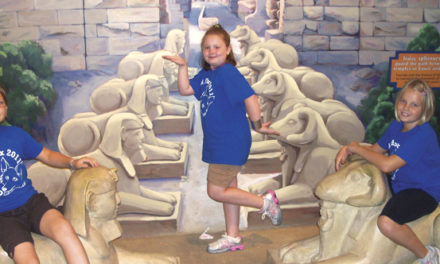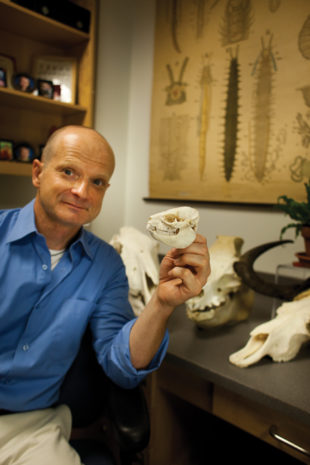
Armin Moczek with his skulls. Photos by Shannon Zahnle
BY JEREMY SHERE
The skulls are waiting when the students arrive: tiny cat skulls, fearsome-looking hyena skulls, blocky horse skulls, and many others, arranged in groups of threes and fours on desks in whichever classroom Indiana University Professor of Biology Armin Moczek happens to be visiting.
“My favorite part is when the students walk in and go, ‘Oh, my God!’” says Moczek, whose “On Skulls and Teeth” lesson is one of several science outreach modules he and a select group of IU biology graduate students, working with the WonderLab science museum, have been developing for local elementary, middle, and high schools since 2005. “There’s something about skulls that is inherently intriguing; students and teachers love handling them.”
Like the other modules — including lessons on the scientific method, the life cycles and biology of insects, how prey defend themselves against predators, plant adaptations, and evolution, all of which match the core objectives of the Indiana teaching standards — the skulls and teeth module is hands on, allowing students to touch and carefully observe the skulls. Moczek has also developed programs for students with special needs, co-directs the Jim Holland Summer Enrichment Program for minority high school students interested in science, and gives public lectures on insect biology and evolutionary developmental biology.
He spends so much time and effort on outreach programs, he says, not only because he enjoys it but also because he learns a lot.
“Kids are naturally curious and often ask simple but fundamental questions that I don’t always know the answers to, so I have to look them up and think about them,” Moczek says. Plus, he adds, it’s valuable for students to learn that science is not just a set of established facts.
“We live at a time when the teaching and doing of science are fundamentally divorced, when we typically don’t learn how we come to know what we know,” he says. “The lessons we create empower kids to not just learn about biology but to experiment and experience the process of discovery.”


